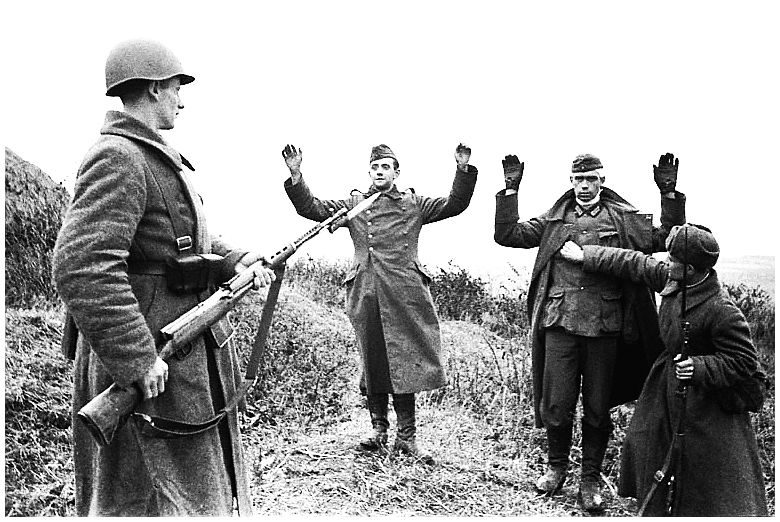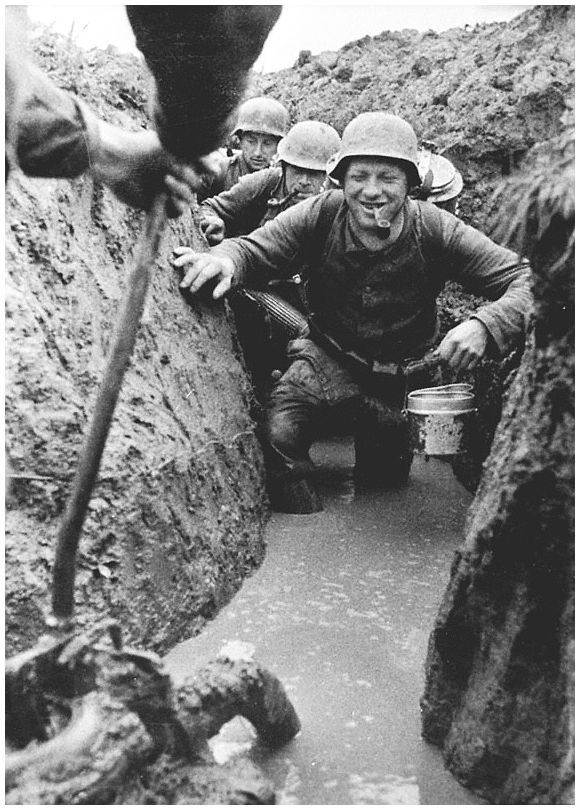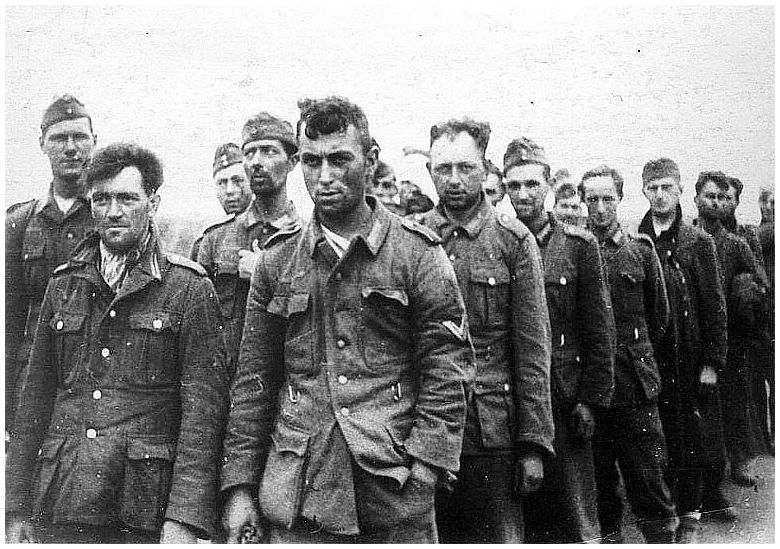Wednesday, November 11, 2009
 German soldiers surrender. 1941. District Tula, 1941.
German soldiers surrender. 1941. District Tula, 1941. German soldiers in the flooded trenches. October 1943
German soldiers in the flooded trenches. October 1943 The retreat of German troops from Leningrad. February 2, 1944.
The retreat of German troops from Leningrad. February 2, 1944.Russia's victory (From the BBC)
In the spring of 1944, a Soviet invasion of Germany became a real possibility, as Soviet troops pursued the retreating German army. Hitler ordered the citizens of Germany to destroy anything that the enemy could put to good use. Embittered by defeats, he later turned against the Germans themselves. 'If the German people lose the war, then they will have proved themselves unworthy of me.'Hitler suffered his greatest military setback of the war in the summer of 1944. More destructive by far than the D-Day landings, Stalin's Operation Bagration in Belorussia eliminated three times more German army divisions than the Allies did in Normandy. Hitler retaliated by demanding specific divisions of the German army stand fast to the last man - the very tactic that Stalin had deployed so disastrously in the early days of the war. Defeat for Germany was only months away.Final victory came for Russia when Soviet soldiers hoisted the red flag over the Berlin Reichstag in April 1945. The occupying troops celebrated, some indulging in the rape and murder of German citizens. When Stalin was told how some of the Red Army soldiers were treating German refugees, he is reported to say: 'We lecture our soldiers too much; let them have some initiative.'"Vladlen Anchishkin, a Soviet battery commander on the 1st Ukrainian Front, sums up the horror of the whole event, when he tells how he took personal revenge on German soldiers: 'I can admit it now, I was in such a state, I was in such a frenzy. I said, 'Bring them here for an interrogation' and I had a knife, and I cut him. I cut a lot of them. I thought, 'You wanted to kill me, now it's your turn.'
 A captive Field Marshal von Paulus at Stalingrad, 1943.
A captive Field Marshal von Paulus at Stalingrad, 1943. District Tupse, 1943. This Russian soldier must have nerves of steel. See the explosion just near him.
District Tupse, 1943. This Russian soldier must have nerves of steel. See the explosion just near him. Raising the flag of the fascist Nazis in an occupied area of Stalingrad, 1942.
Raising the flag of the fascist Nazis in an occupied area of Stalingrad, 1942. The soldier escort German prisoners of war captured in the battle for Moscow, in 1942, the Smolensk region.
The soldier escort German prisoners of war captured in the battle for Moscow, in 1942, the Smolensk region. General Helmuth Weidling (left), surrenders to the Russians. May 1945. He was in charge of the defence of Berlin.
General Helmuth Weidling (left), surrenders to the Russians. May 1945. He was in charge of the defence of Berlin. Hitler in desperation had sent these boys to fight the approaching Russians. Berlin. May. 1945.
Hitler in desperation had sent these boys to fight the approaching Russians. Berlin. May. 1945. A column of German prisoners of war on the Garden Ring of Moscow July 17, 1944.
A column of German prisoners of war on the Garden Ring of Moscow July 17, 1944. Soviet fighters tear down the Nazi swastika from the entrance to the factory. Voykova in the liberated city of Kerch, 1944.
Soviet fighters tear down the Nazi swastika from the entrance to the factory. Voykova in the liberated city of Kerch, 1944. A column of German prisoners of war captured in fighting in the Orel region, 1943.
A column of German prisoners of war captured in fighting in the Orel region, 1943. General-Field Marshal Keitel directed to the signing of the act of unconditional surrender of Germany. May 8, Berlin, Karlhorst.
General-Field Marshal Keitel directed to the signing of the act of unconditional surrender of Germany. May 8, Berlin, Karlhorst. Kietel signs the surrender.
Kietel signs the surrender.Labels: germany surrenders
0 Comments:
Subscribe to:
Post Comments (Atom)